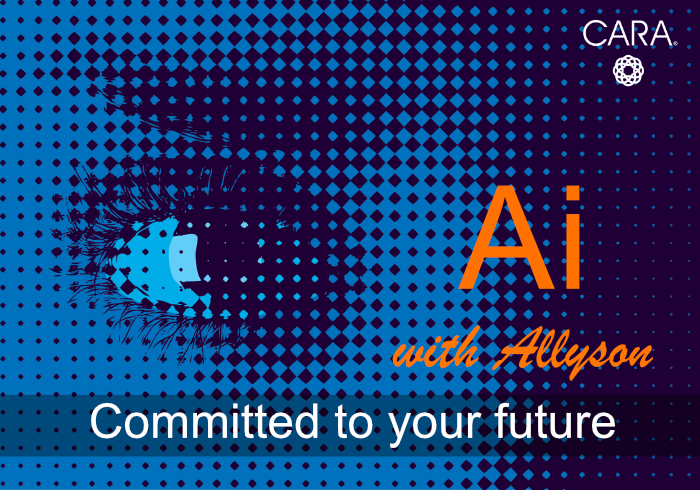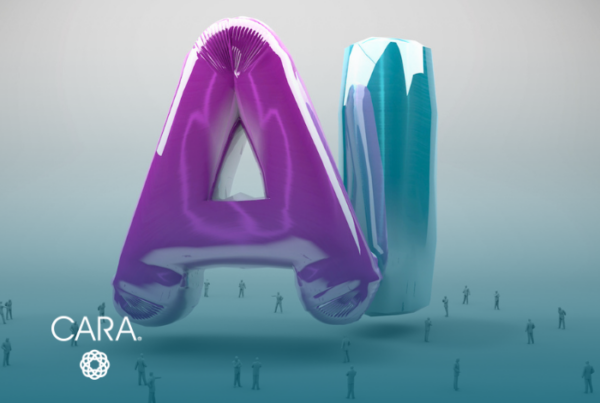
A wave of AI innovation is reshaping the workforce’s skill needs faster than ever. AI in learning and development has robotics and systems automate routine work, and human skills become the true currency for career success. Talent leaders know job descriptions can’t keep pace with this rapid change, leaving some employers and workers anxious. By embracing a skills-based talent strategy, companies can map skills gaps, align training and development initiatives, and empower employees to surf the AI wave rather than be swept away by it.
The key is understanding which skills will complement new technologies and drive business forward. With targeted upskilling and an agile skills framework, talent leaders can lead a workforce transformation poised to harness AI’s potential. And employees? Employees must continuously expand their skills, as well as pursue ongoing development opportunities to remain relevant and invaluable.
Where do we Start with our AI Literacy?
These skills start with digital literacy. The Library Association’s digital literacy task force offers this definition: “Digital literacy is the ability to use information and communication technologies to find, evaluate, create, and communicate information, requiring both cognitive and technical skills.” [1]
Digital literacy can be developed at any age. It’s good to see resources for educators to support the digital literacy of our future employees. Did you know that Microsoft has a support feature used by educators to teach students how to search? Called “Search Coach”,[2] the tool provides context and guidance for students to ask effective questions to discover reliable sources.
New technology has always required us to develop technical skills. Depending on your job role, this could include skills such as programming, system integration, or data analysis. For some jobs, it may be simply learning how to use an AI prompt to leverage the power of generative AI.
Here are two courses I’m working through to develop technical skills using Chat GPT:
- From the Neuron: Intro to Chat GPT (https://www.theneuron.ai/courses/intro-to-chatgpt-training-course)
- From LinkedIn Learning: How to Research and Write Using Generative AI Tool by Dave Birss (https://www.linkedin.com/learning/how-to-research-and-write-using-generative-ai-tools)
Most businesses require employees to work together, so interpersonal and leadership skills will still be in high demand. The need to interact with others, lead others, and build high-performing diverse teams will not go away with AI.
We’ll also need to strengthen and develop skills related to ethics and governance. As we leverage AI tools, we must ensure their ethical use and design. We will need to establish governance processes to ensure ethics and safety of use.
Learn to Ride the AI Waves
I don’t envision AI taking on all human skills, so as we work alongside AI-enabled technology, there will be a strong need to continue to build skills such as creativity and critical thinking. While AI might give us a head start, we will need to use our human competence to go beyond what AI generates for us.
So rather than be swept away by the waves of change coming at us, let us learn to ride them by developing the skills we need to direct us to the shore. With the right skills, we, as humans, can adapt, explore, and thrive in the most turbulent waters. As leaders of talent and business, we need to guide our organizations to harness this surge of AI and build skills to change, learn, and grow. By empowering our people and focusing on the horizon, we can help guide our organizations through rough waters.
More on AI in Learning and Development
You can catch up on my complete journey by reading “Allyson’s AI Journey — #1 and #2. Then, check out the final leg of my AI journey here.
If you’re on your AI journey and need some advice on how to train and develop your teams, reach out to The CARA Group’s expert learning consultants. We can help you devise a learning journey tailored to your business needs.
Upskill my teamAI in Learning and Development FAQs
Q: Why is AI important in organizational learning and development strategies?
AI is transforming the field of learning and development (L&D) by offering exciting possibilities for personalized learning, data-driven insights, and engaging experiences. L&D experts can leverage AI to create customized learning solutions that identify learning gaps with data-driven insights.
Q: How to use AI in learning and development?
AI can’t replace human intelligence needed to help teams develop critical thinking skills and creative strategies. However, L&D leaders can lean on AI to create adaptive learning strategies by analyzing learner data (performance, preferences, learning style) and tailor the learning experience accordingly. AI can also be used to identify learning gaps, assess program effectiveness, and measure the impact of training.
[1] https://www.edweek.org/teaching-learning/what-is-digital-literacy/2016/11>
[2] https://support.microsoft.com/en-au/topic/get-started-with-search-coach-1dd4334c-9a43-461d-9ddc-630c8f7e6714



